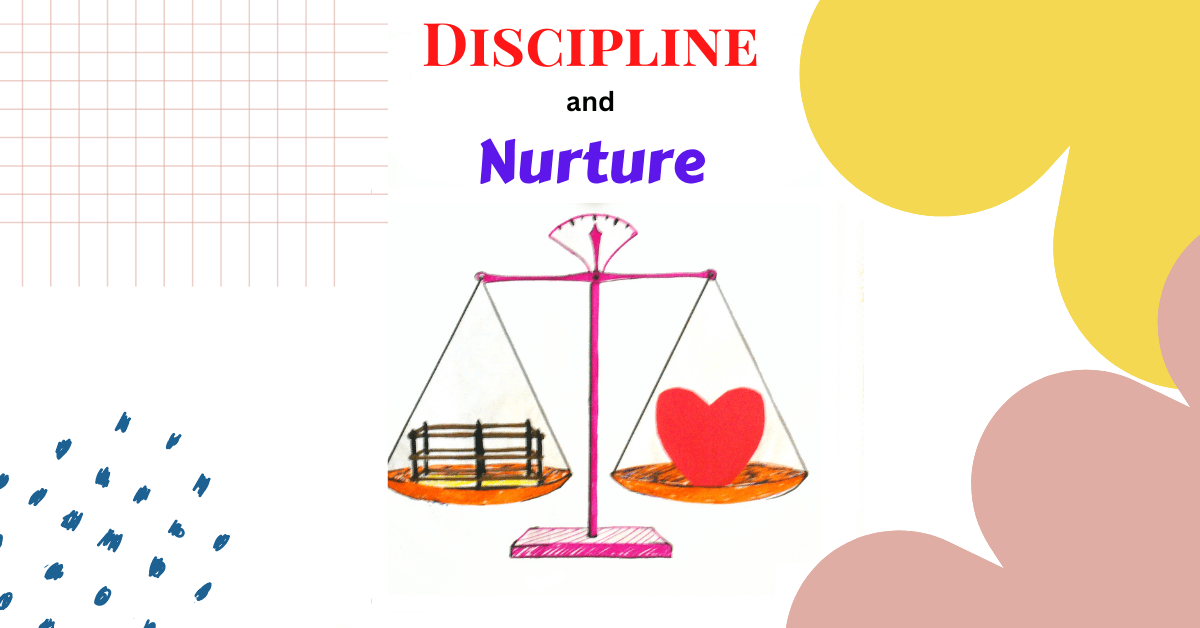Balancing discipline and nurturing is one of the biggest challenges that parents face when raising children. Both discipline and nurturing play a crucial role in shaping a child’s behavior and personality, and finding the right balance between the two can be a delicate task. The key to success; approach each situation with empathy, understanding, and patience, and to tailor your approach to the specific needs and personalities of your children.
Discipline is an essential aspect of child-rearing, as it helps children learn to follow rules and make good decisions. However, discipline must be applied in a way that is fair, consistent, and appropriate to the child’s age and development. Children need to know what is expected of them and what the consequences will be if they don’t follow through. They also need to feel safe and secure in their environment, and to know that their parents love and support them.
Nurturing, on the other hand, is all about showing love, understanding, and support. Children who are nurtured grow up to be confident, self-assured, and resilient. Nurturing can take many forms, from spending quality time with your child to providing emotional support during difficult times. It’s also important to recognize and validate your child’s feelings and experiences, and to encourage their individuality and creativity.
To find the right balance between discipline and nurturing, it’s important to understand your child’s individual needs and personality. Some children are naturally more sensitive and need more nurturing, while others are more independent and need a firmer hand. It’s also important to be flexible and adaptable in your approach, as children grow and change over time.
One approach that can help you find the right balance is to set clear rules and boundaries, and to apply them consistently. This helps children feel secure and understand what is expected of them. It also teaches them responsibility and accountability, and helps them develop good decision-making skills. When they make mistakes, and there’s going to be a lot of them, it’s important to respond with empathy and understanding, and to provide positive reinforcement for good behavior.
Positive reinforcement, rather than punishment, is to encourage the good behaviors and habits. This involves rewarding children for their good choices and accomplishments, and helping them to see the positive consequences of their actions. Positive reinforcement helps children to develop a sense of pride and accomplishment, and encourages them to continue making good choices.
It’s also important to be aware of your own feelings and reactions when disciplining your children. If you are feeling frustrated or angry, it’s best to take a step back and calm down before engaging in a difficult conversation. When you are calm and patient, it’s easier to communicate effectively with your children and to find a solution that works for everyone.
Finally, it’s important to remember that children are unique individuals, and what works for one child may not (and from experience probably won’t) work for another. It’s important to be flexible in your approach and to adjust your style as needed to meet your child’s changing needs and each individual personality.
Balancing discipline and nurturing is complex, an ongoing process. It requires patience, empathy, understanding, and a willingness to adapt and adjust your approach as needed. By approaching each situation with these qualities, and by tailoring your approach to your child’s individual needs and personality, you can help your children grow into confident, responsible, and resilient adults.
